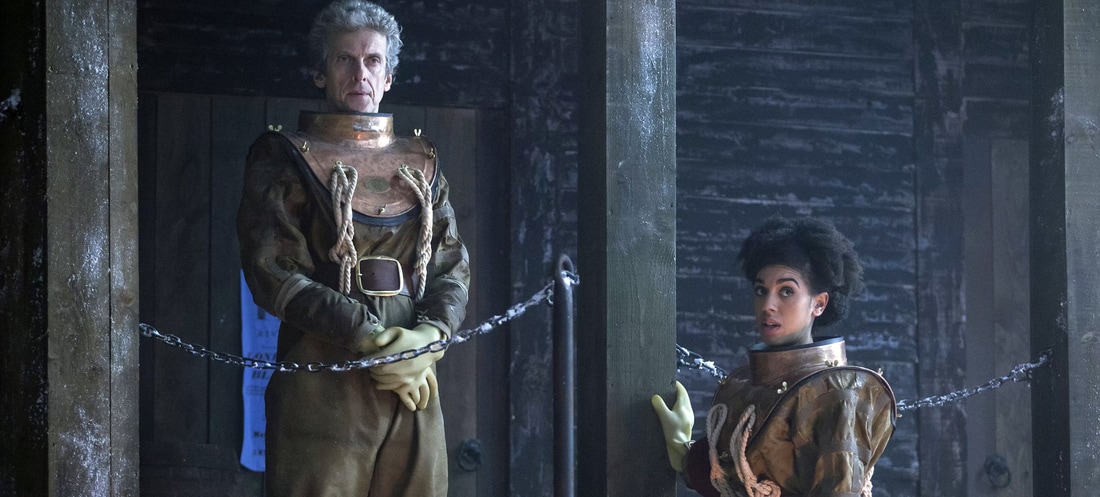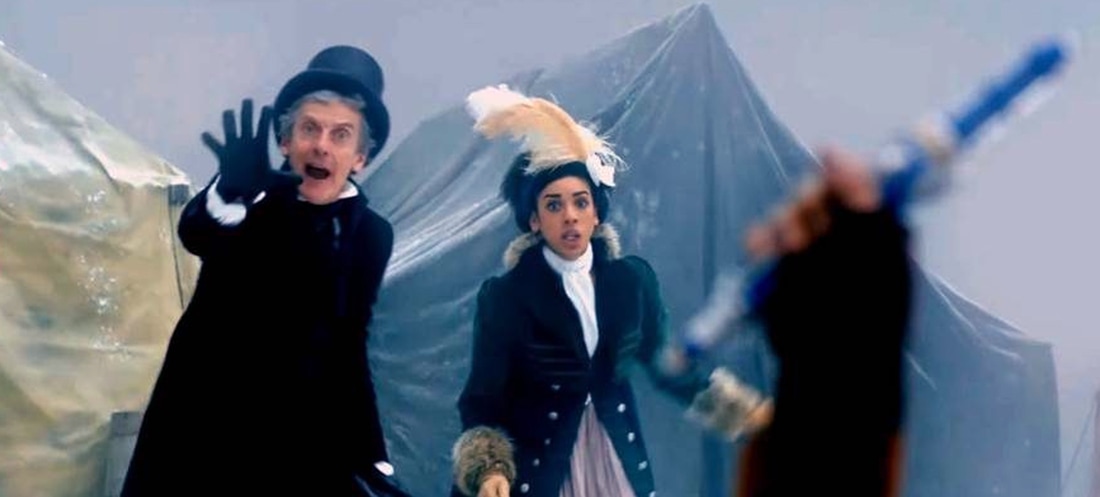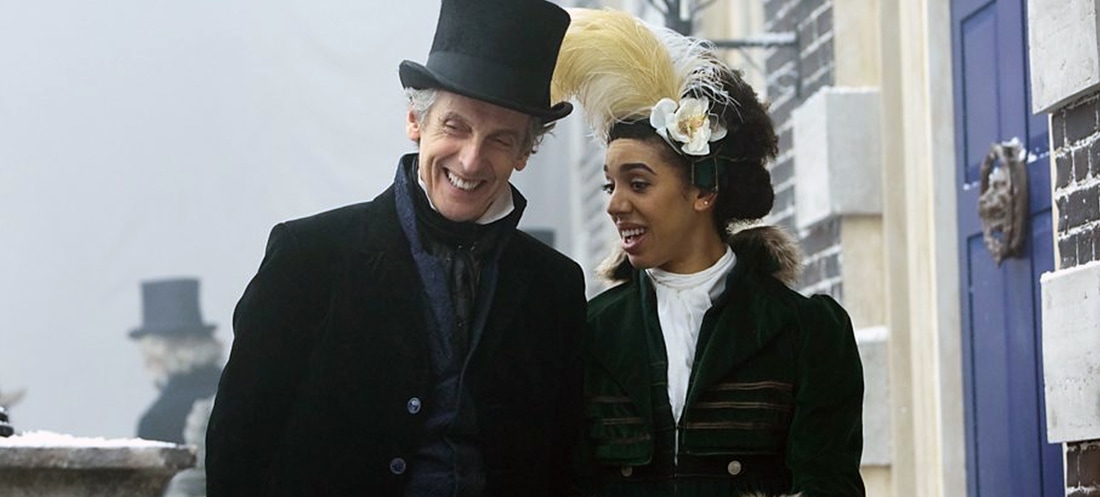Thankfully, this tenth season of the long-running BBC SciFi procedural has returned to its roots (mostly), leaving behind some of the psychological weight of the past few series in favor of gleaning sparks of magic where they can be found. “Thin Ice” is no exception; in fact, one could argue that it ‘dials up the magic’ to eleven by giving the Doctor and Bill a chance to set things right in pre-Victorian England for some scrappy street urchins and a mysterious underwater ‘slave.’
Things begin with our dashing duo returning home from last week’s adventure only for them to discover they’ve landed in the past on the cusp of the last “Frost Fair,” a circus-style event taking place atop the frozen Thames River. Deciding to spend a few coins on the festivities, the Doctor and Bill grow increasingly concerned that things are not what they seem: victims are disappearing beneath the ice, yet the local authorities seem more concerned with harvesting the sludge from the river’s bottom than they are with resolving its mysteries.
Of course, this leads to the episode’s soliloquy, handled brilliantly by Peter Capaldi: "Human progress isn't measured by industry. It's measured by the value you place on a life, an unimportant life, a life without privilege. The boy who died on the river, that boy's value is your value. That's what defines an age. That's what defines a species."
Despite saying that I hate splitting hairs, I’d be a fool if I let that pass without a little commentary.
I “get” that the central point screenwriter Sarah Dollard is making deals with “the little folk,” maybe even the riffraff we don’t see in our own daily travels. As the saying goes, every man’s death diminishes us even a little bit, so those nobler than the rest must remind us of the reality from time to time. (Mind you: I’m not arguing against that whatsoever, just trying to explain its sentiments here.) But I thought that those feelings were best applied to all of us and not just – well – “the just”? And who gets to define who “the just” are? Is it the poor? The underprivileged? The forgotten? Who? Dollard never quite clarifies that identity, nor who gets to provide the definition.
If a society truly measures itself by a single life, then why is there no remorse when the villain suffers his comeuppance? Liberals/Progressives would insist that even the evilest among us is capable of being rehabilitated or – at least – deserves to live out his life behind bars as opposed to being drowned or eaten alive, but “Thin Ice” kinda/sorta revels unnecessarily in revenge if even for an only scene, throwing its core message under the bus in favor of inducing some glee of from its audience. Or is it just that the life of a prominent family has no value?
It’s a minor quibble but one that stuck with me even after the episode’s end.
Because so much of “Thin Ice” goes down with the same sugary ease of those 70’s era stories I referenced in my opening, it’s an imminently forgivable misgiving. Clearly, the story isn’t mean to sleight any soul; rather it’s meant to underscore that we as humans are at our best when we’re recognizing everyone’s worth … for it’s in that coming together that we will pave the way toward a brighter, collective future.




 RSS Feed
RSS Feed